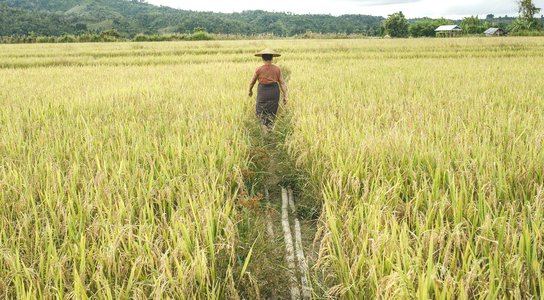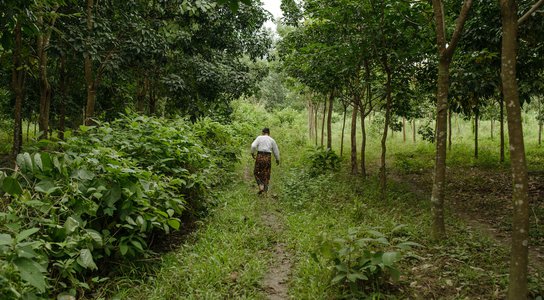In Rubber Barons, Global Witness documents the devastating impact of Vietnam’s rush for rubber on local communities in Laos and Cambodia. The investigation also shows how international financiers Deutsche Bank and the International Finance Corporation were backing these land grabs – often in contravention of their own policies.
In both Laos and Cambodia, national laws are supposed to protect forests, limit the size of foreign land concessions and require consultation with local communities over land use, but these laws are rarely enforced. Millions of hectares of land have been handed over without the knowledge or consent of the people who live on it.
Two giant Vietnamese companies lie at the heart of this story: Hoang Anh Gia Lai (HAGL) and the Vietnam Rubber Group (VRG). Both operate through a web of subsidiaries, which help hide the identity of their true owners.
These Rubber Barons and their subsidiaries have carried out forced land grabs without compensation, and satellite images show they are logging illegally in protected forests. Violence, harassment and forced evictions were regularly reported in interviews with local groups, with thousands of households deprived of their livelihoods from forest products or subsistence agriculture.
HAGL and VRG have both received substantial foreign investments from Deutsche Bank and the International Finance Corporation, either directly or via intermediary funds. The impacts of these investments felt locally highlight how both institutions lack adequate systems for ensuring that investments don’t drive human rights abuses, or breach the most basic legal and environmental standards.
Since the launch of Rubber Barons, international backers of both companies have divested, and the global timber certifier the Forest Stewardship Council is investigating VRG’s operations. Meanwhile, communities in Cambodia who lost land to HAGL formally sat face-to-face with the company for the first time in January 2015, under an IFC-led dispute resolution process, and VRG has introduced processes to consult with communities and address complaints across all of its plantations.
Cases like these can be found in many parts of the developing world. Global Witness is calling for the establishment of new international rules for all companies involved in large land deals. These rules would apply equally to companies in the local or ‘host’ country and foreign investors, ensuring transparency of company ownership and proper compliance with national and international laws.


